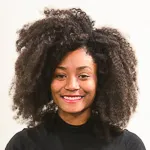Many men were put on the defensive after the publication of my last column, I am a cockblocker: Male privilege and the campus party scene. The column failed to offer a solution to male privilege. Even for male feminists, it is unclear how to combat their privilege.
There is only one solution: Be an ally. And to do so, you’re going to need to “check your privilege.”
The phrase “check your privilege” seems to be becoming a cliché, and its brilliance took a hit when Princeton freshman Tal Fortgang wrote an inflammatory article about the phrase in “Checking My Privilege: Character as the Basis of Privilege,” in the Princeton Tory in the spring of last year. While the phrase is sometimes used to silence people with other opinions, that should never be the case, especially in matters of oppression when open, respectful dialogue is essential from all parties. Fortgang missed the potency of the phrase.
“Checking privilege” is not supposed to be said to silence or attack someone. It is a phrase that is asking for human understanding and empathy. It is an act of being self-aware, recognizing how you navigate the world and thinking of others when you are really honest with yourself.
Everyone should, in some way, check his or her privilege, and this “check” is the first step to becoming an ally to any social movement.
Having identities that are systemically and socially associated with privilege–whiteness, masculinity, cis-gender identity, heterosexuality–gives individuals the luxury of not experiencing prejudice or discrimination on the account of race, ethnicity, class, gender or sexuality. Because my intersectional identities of blackness and womanhood differ from many at Stanford, I always ask people to see the world through my lens. Similarly, I want to know how they see the world so that we can start a dialogue.
When socially underprivileged people seek allies, they are seeking people to listen, take note, understand and then take action in the way they see appropriate. Action can take the form of challenging a racist slur, or making a pledge to wipe rape culture language from one’s own speech. But the key to allyship is constantly listening, and acting on what one has learned. Everyone, especially Stanford students, should recognize the privileges they may have in their lives, and make a conscious effort to challenge or push back on misconceptions.
But allyship is hard.
It is quite uncomfortable to go against the grain, and to have tough conversations about identity and privilege. It is hard to take a seat in a place where there are others who don’t have all of the same identities that you do. Allyship requires acknowledging that we are all operating within a stratified system. Realizing your place within the system, and trying to reach out to others who may be at a different place than you is a wonderful, unselfish act.
While this is difficult, it is worth it.
Let’s take an example:
Cis-gendered women who like to date men do not have to worry about someone misgendering them, or emotionally or physically harming them on the account of whom they like to kiss or fall in love with being the “wrong” gender. As someone with this identity, I may be unaware of these struggles, and it is the privilege that was bequeathed to me by an oppressive, heteronormative society.
But, allies can try their best to put themselves in queer spaces, and to just listen. They can check their privilege at the door, and recognize their space in any discussion of queer identity.
Allyship is not a badge of honor that one can just put on and take off to go along with the trend of being politically correct, liberal and hip. Not personally undermining a group or having one friend with the identity of an oppressed group does not make you an ally. It just makes you a decent person. And being an ally does not mean that you should become the face of the group. “Being an ally means to stand next to, and not in front of a person.” While allyship is a constant effort and evolution, it also means making room for those with different experiences.
So if you are upset by my article, please read it again. Imagine feeling unsafe all of the time at a frat party on our own college campus surrounded by our peers. Check your privilege, and do the difficult task of being an ally and seeing the world as one of your peers might be systematically forced to. And no, this does not just mean to start calling yourself a feminist. It takes work.
Stand next to women, not in front of them.
Contact Mysia Anderson at mysia ‘at’ stanford.edu.
